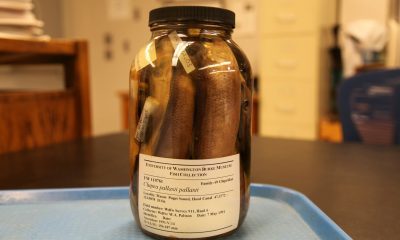By Gwyn Wright via SWNS
In order to save the planet - and our health - people should avoid tucking into treats such as sweets, pastries and fried foods, scientists warned.
Unhealthy food has a negative effect on the Earth's ecology as well as our health, according to a new study.
Australian researchers found sweets, pastries, processed meat and fatty foods are all bad for the environment.
The team looked at 20 studies on the environmental impact of food consumption in Australia and New Zealand and found unhealthier foods are worse for the planet.
More land and water is used up in the production of processed and fatty foods than healthier alternatives, while meat emits a lot of greenhouse gasses, the experts discovered.
Water, energy and pesticides are used in food production and packaging, and then release methane as they decompose in landfills.
Food production and consumption account for a quarter of global emissions.
Half of the world’s habitable land is used for agriculture, which has led to 60 percent of the world’s biodiversity being lost, while around two-thirds of the world’s fresh water is used for irrigation.
Many people eat more junk food than their governments recommend, contributing to pollution, scientists found.
The Australian Government said the country emitted 510 metric tonnes of carbon dioxide in 2020, with food emissions making up 14 percent of the total.
Food waste is responsible for six percent of the country’s greenhouse gas emissions, according to a report published in 2017.
via GIPHY
Existing Australian government guidelines recommend daily servings of everyday staples such as fruit and vegetables, grains, lean meats, fish, nuts, seeds and dairy products.
These ‘core’ foods contribute to around two-thirds of food-related greenhouse gasses in Australia, while sugary and fatty foods, which the researchers call ‘discretionary’ foods, make up the other third of food-related emissions.
In New Zealand, the highest emitters are meat, seafood and eggs, which make up 35 percent of emissions, followed by highly processed foods such as ice cream and pastries, which make up 34 percent of food-related emissions.
Nutrition guidelines in New Zealand consider the environmental impacts of food but those in Australia do not, scientists said.
The researchers said Australian guidelines should be urgently changed to reflect the environmental impact of food and say we should all cut back on treats to save the planet.
Lead study author, Sara Forbes, said: “Discretionary foods have a higher cropland, water scarcity and ecological footprint. Meat also emits greenhouse gases, although its water scarcity footprint is lower compared to dairy products, cereals, grains, fruit and vegetables.
“It is time we better acknowledged the environmental impacts of the type and amount of food we eat, considering the planet as well as our health.
“By 2050, the world’s population is projected to reach 10 billion people. There is no way we can feed that amount of people unless we change the way we eat and produce food.”
The findings were published in the journal Public Health Nutrition.

 Parenting7 days ago
Parenting7 days ago
 Lifestyle6 days ago
Lifestyle6 days ago
 Good News3 days ago
Good News3 days ago
 Broadcast1 week ago
Broadcast1 week ago
 Health3 days ago
Health3 days ago
 Broadcast1 week ago
Broadcast1 week ago
 Money1 week ago
Money1 week ago
 Wildlife2 days ago
Wildlife2 days ago






















